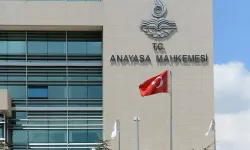Burada, özellikle uyuşturucu maddeler gibi toplumun sağlık, huzur ve güvenini tehdit eden malları üretmek, yurtiçinde ve yurtdışında dağıtmak ve bu maddelerin kaçakçılığını yapmak üzere oluşturulan ve genellikle de sınır ötesi nitelik taşıyan suç örgütlerinin tüm yönleriyle ortaya çıkarılması hedeflenmektedir. Örneğin, Ülkemizin transit ülke olarak kullanılacağı uyuşturucu ticaretine dair bir kontrollü teslimatta, uyuşturucu ticareti güzergâhına konu olan tüm ülkelerin iş birliği yapması gerekmektedir. Zira kontrollü teslimat, uyuşturucu ticaretini yürüten asli örgüt ve faillerin belirlenmesi, delillerin zaman kaybedilmeden muhafazası, adlî ve idarî makamlar arasında anlık bilgi ve belge paylaşımı ile ortak çalışma yürütülmesine hizmet etmektedir. Örneğimize göre uyuşturucu maddenin nihaî olarak Ülkemize varışı ve dağıtımının yapılacak olması durumunda, diğer ülkelerden alınan bilgilere göre yurtiçinde adlî ve idarî tedbirler alınır.
Diğer taraftan, uyuşturucu maddenin Ülkemizden çıkış yapması söz konusu olacaksa, çıkış yapılıncaya kadar uyuşturucu trafiğine dair sürecin kesinti siz takibinin sağlanması gerekir. Kontrollü teslimat bu bakımdan, ülkelerin suçluları takip etmesi, süreci kesintiye uğratmadan asli fail ve organize suç örgütlerini tespit etmesi, bilgi ve belge paylaşımını sağlamaktadır. Konuyla ilgili olarak “Kontrollü Teslimat Uygulaması Esas ve Usulleri Hakkında Yönetmelik” çıkarılmıştır.
Yönetmeliğin 5 inci maddesine göre, kontrollü teslimatın uygulanabilmesi için bazı şartların gerçekleşmiş olması gerekir. Kontrollü teslimat kapsamına giren kaçakçılık faaliyetinin çok ciddi organize edilmiş olması; organizatörlerin, sermayedarların ve şebeke elemanlarının ortaya çıkarılması ve bunlar hakkında bütün delillerin tespiti için başka bir imkân bulunmaması; mal veya fonların gideceği son yere kadar herhangi bir boşluğa meydan vermeyecek şekilde denetimin sağlanabilmesi; kontrollü teslimat uygulamaya yeterli zamanın bulunması gerekmektedir.
Diğer taraftan, Türkiye’de hazırlanarak yurtdışına götürülecek veya transit geçecek her türlü kaçak mal veya fonlar için ayrıca, kontrollü teslimat yönteminin boşluksuz (kesintisiz) işleyeceği ve failler hakkında kovuşturma ve soruşturma açılacağının talep eden ülke tarafından garanti edilmesi ve kontrollü teslimat uygulamasının sona erdiği, Türk vatandaşlarının yakalandığı ülke devleti tarafından Türk vatandaşları ile kontrollü teslimata konu mal veya fonlar ile bunların naklinde kullanılan araçlar ile suçtan kaynaklanan malvarlığı değerlerinin iadesi hususunun taahhüt edilmiş olması gerekmektedir.
Konuya ilişkin olarak Avrupa Konseyi tarafından “Ceza İşlerinde Karşılıklı Adli Yardım Avrupa Sözleşmesi’ne İkinci Ek Protokol”ü (Ek Protokol) hazırlanmıştır. Ek Protokol, Avrupa Konseyi’nin 182 nci Sözleşmesini oluşturmaktadır. Ülkemiz Ek Protokolü 22/03/2016 tarihinde imzalamış ve 11/07/2016 tarihinde onaylamış olup, Ek Protokol 01/11/2016 tarihinde Ülkemiz bakımından yürürlüğe girmiştir. Ek Protokolün 18 inci maddesine göre, her bir taraf diğer bir tarafın isteği üzerine, suçluların iadesini gerektiren cezai soruşturmalar çerçevesinde, kendi ülkelerinde kontrollü teslimatlara izin verilebileceğini emniyet altına aldığını taahhüt eder. Kontrollü teslimatların yerine getirilmesi kararı, her bir durum için tarafın ulusal kanunlarına dayanarak
talepte bulunan tarafın yetkili makamlarınca esas alınır. Kontrollü teslimatlar tarafların kendi düzenlemelerine uygun şekilde yapılır. Eylemde bulunma yetkisi, doğrudan ve kontrol operasyonları o tarafın yetkili makamlarına aittir.
Ek Protokol çerçevesinde bazı ülkeler kontrollü teslimat konusunda yetkili ulusal birimlerini beyan etmiştir. Bu beyanda bulunmayan ülkeler bakımından kontrollü teslimat konusunda kendi ulusal mevzuatları geçerli olacaktır. Ülkemiz Ek Protokolde yetkili ulusal birim bakımından bir beyanda bulunmadığından Yönetmelik hükümlerinin uygulanması söz konusu olacaktır. Yönetmeliğin 14 üncü maddesine göre, Yönetmelik hükümlerinin uygulanması İçişleri Bakanlığı ile Gümrük ve Ticaret Bakanlığı tarafından yerine getirilir.
Yönetmeliğin 4 üncü maddesine göre, Yabancı ülkelerden gelen kontrollü teslimata dair talepler Emniyet Genel Müdürlüğü’ne (Kaçakçılık ve Organize Suçlarla Mücadele Daire Başkanlığı – Narkotik Suçlarla Mücadele Daire Başkanlığı) bildirilir. İlgili birim de Ankara Cumhuriyet Başsavcılığından kontrollü teslimat kararı talep eder.
Yabancı ülkelerin kontrollü teslimat talepleri hakkında karar vermeye Ankara Cumhuriyet Başsavcılığı yetkiliyken, suçtan kaynaklanan mal varlığı değerlerinin kontrollü teslimatına ilişkin yabancı ülke talepleri hakkında karar vermeye Ankara Sulh Ceza Mahkemesi yetkilidir. Kontrollü teslimat kararının verilmesini müteakiben bu kararın uygulaması ilgili Başkanlıkça veya Başkanlığın uygun göreceği birimlerce yürütülür. Kontrollü teslimat uygulaması sırasında kullanılacak yöntemler uygulayıcı birim tarafından belirlenir.
Yönetmeliğin 9 uncu maddesine göre, izleme ve gözleme işleminin tehlikeye düşmesi veya kontrollü teslimat uygulamasına devam edilmesi halinde, delillerin kaybolması veya sanıkların elden kaçırılma ihtimalinin ortaya çıkması durumunda, mahkeme kararı gerekmeksizin kontrollü teslimatı uygulayan birim amiri tarafından kontrollü teslimat uygulamasına son verilir ve derhal Başkanlığa bilgi verilir. Gerek yurtiçi kontrollü teslimat, gerekse kontrollü giriş, geçiş ve çıkışlarda, ilgili kuruluşlar arasındaki işbirliği ve koordinasyon ilgili Başkanlık tarafından yürütülür.
Abdullah ÖMEROĞLU
Tetkik Hâkimi
...
CONTROLLED DELIVERY IN TURKISH LAW
Countries are engaged in international intelligence, judicial or administrative cooperation in the fight against serious international crimes such as drug trafficking, which is recognized as transnational crime. One of the means of such cooperation is controlled delivery which is vested with judicial as well as administrative characteristics. The principles and procedures of controlled delivery are defined in the “Regulation on the Principles and Procedures of Controlled Delivery Application”(Regulation). As per Article 4 of the Regulation, controlled delivery is an operational activity that ensures the detection of perpetrators and all kinds of evidence, laying bare all aspects of criminal organizations, and the transfer of smuggled goods or goods suspected of being smuggled within the knowledge and under the supervision of competent authorities for the purpose of confiscating smuggled goods or funds or those suspected of being smuggled.
The aim is to uncover all aspects of criminal organizations, generally of a transnational nature, which are formed to produce goods, such as drugs that threaten the well-being, peace and trust of the society, to distribute them at home and abroad, and to smuggle these substances. For example, it is necessary that all states subject to the drug trade route cooperate in a controlled delivery of drug trade where Turkey shall act as a transit state. Controlled delivery serves to identify the main organizations and perpetrators of the drug trade, the prompt preservation of evidence, and carries out joint work through the instantaneous exchange of information and documents between judicial and administrative authorities. As per our example, in the event that the drug ultimately arrives in Turkey and its distribution is to be made, judicial and administrative measures shall be taken according to the information received from other states.
On the other hand, if the drug is to cross Turkish borders, it is necessary to ensure sustained monitoring of the drug trafficking process until it crosses the border. In this respect, controlled delivery enables states to monitor criminals, identify the principal offender and organized crime organizations without barring the process, and to share information and documents. Hence, the “Regulation on the Principles and Procedures of Controlled Delivery Application” was issued.
As per Article 5 of the Regulation, certain conditions must be fulfilled for controlled delivery to be implemented. It is necessary that the smuggling activity realized under the scope of controlled delivery be very seriously organized; that organizers, shareholders and network members be divulged and that there are no other means of confirming all evidence with respect to them; that sustained control be ensured until the good or funds are transported to their final destination; that enough time is at hand to implement controlled activity.
On the other hand, it must be guaranteed that sustained delivery shall apply with regard to illegal goods and funds made ready in Turkey to be transferred abroad and that it be guaranteed by the state requesting the prosecution and investigation of the perpetrators and that controlled delivery has been terminated and that the return of Turkish citizens by the state in which they were caught, assets resulting from crime and goods or funds subject to controlled delivery as well as means of transport used in their transfer be guaranteed.
A Second Additional Protocol to the “European Convention on Mutual Assistance in Criminal Affairs (Additional Protocol)” has been prepared by the Council of Europe. The Additional Protocol constitutes the 182th Convention of the Council of Europe. The Additional Protocol, signed by Turkey on 22/03/2016 and ratified on 11/07/2016, entered into force on 11/07/2016. As per Article 18 of the Additional Protocol, each party undertakes to ensure that, at the request of other Party, controlled deliveries may be permitted on its territory in the framework of criminal investigations into extraditable offences. The decision to carry out controlled deliveries shall be taken in each individual case by the competent authorities of the requested Party, with due regard to the national law of the Party.
Controlled deliveries shall take place in accordance with the procedures of each Party. Competence to act, direct and control operations shall lie within the capacity of the competent authorities of that Party.
Within the framework of the Additional Protocol, some states have declared their competent national units with respect to controlled delivery. For states who have not made such declaration, their national legislation shall apply with respect to controlled delivery. As Turkey has not made a declaration regarding the competent national unit in the Additional Protocol, the provisions of the Regulation shall apply. As per Article 14 of the Regulation, the implementation of the provisions of the Regulation is carried out by the Ministry of Interior and the Ministry of Customs and Trade.
According to Article 4 of the Regulation, requests for controlled deliveries from foreign states are notified to the General Directorate of Security (Department for Anti-Smuggling and Organized Crime -Anti-Narcotics Department). The relevant unit shall then request a controlled delivery decision from Ankara Public Prosecutor’s Office.
While Ankara Chief Public Prosecutor’s Office is authorized to render decisions requests for controlled delivery of foreign states, Ankara Criminal Court of Peace renders decisions on requests for controlled delivery of assets resulting from crimes by foreign states. Following the decision of a controlled delivery, the implementation of this decision shall be carried out by the relevant Presidency or by units deemed appropriate by the Presidency. The methods to be used while controlled delivery is exercised are determined by the implementing unit.
As per Article 9 of the Regulation, in the event that the monitoring and observation process is imperiled or in the case that evidence is lost or there is the possibility of the accused person fleeing when the application of controlled delivery is continued, controlled delivery shall promptly be terminated by the supervisor of the unit without a court order and the Presidency shall immediately be informed. Cooperation and coordination between relevant institutions with respect to domestic controlled delivery as well as controlled entry, passage and exit shall be carried out by the relevant Presidency.
Abdullah ÖMEROĞLU
Rapporteur Judge
*Adalet Bakanlığı tarafından yayımlanan Uluslararası Hukuk Bülteninin Mayıs 2019 sayısından alınmıştır.











